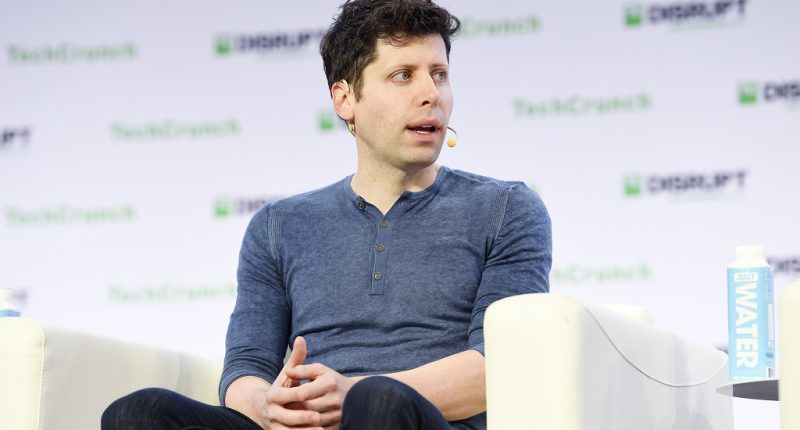In the vast expanse of technological progress, artificial intelligence (AI) stands as a formidable frontier, promising a world of endless possibilities. From transforming industries to revolutionizing our daily lives, AI has the power to reshape our future. And we have started to see some of that power already, courtesy the ChatGPT surge. However, with great power comes great responsibility, and the exponential growth of AI necessitates a critical examination of its implications. And from the looks of it, Sam Altman, chairman of OpenAI (which developed ChatGPT), agrees with this sentiment.
Speaking in front of the Senate Judiciary Committee for the first time in a hearing on Tuesday, the CEO of OpenAI said that the U.S. “might consider a combination of licensing and testing requirements for development and release of AI models above a threshold of capabilities.” He added that the use of AI to interfere with election integrity is a “significant area of concern,” and urged Congress to impose new rules on big tech and AI. Both sides expressed their fears about how AI could “go quite wrong.”
“OpenAI was founded on the belief that artificial intelligence has the potential to improve nearly every aspect of our lives, but also that it creates serious risks,” Altman told the hearing.
Going forward, members of Congress will continue to have hearings on AI.
“There’s no way to put this genie in the bottle. Globally, this is exploding,” said Senator Cory Booker, one of the lawmakers with questions about how best to bring regulations into artificial intelligence. “I am nervous about it,” Altman said while speaking about elections and AI, adding rules and guidelines are needed to regulate this sector. “My worst fears are that we—the field, the technology, the industry—cause significant harm to the world. I think that can happen in a lot of different ways,” he added.
Apart from Altman, the others testifying before the committee includes two other AI experts, professor of Psychology and Neural Science at New York University Gary Marcus and IBM Chief Privacy and Trust Officer Christina Montgomery. Sen. Dick Durbin (D., Ill.) remarked that he could not recall a time when representatives for private sector entities had pleaded for regulation.
The hearing on Tuesday served as a platform for raising awareness among lawmakers about the potential dangers and vulnerabilities associated with AI, especially in elections. It highlighted the need to strike a balance between leveraging AI’s benefits while mitigating the risks it poses to democracy. Altman’s testimony brought to the forefront the importance of addressing this issue proactively, ensuring that safeguards and accountability mechanisms are in place to prevent undue influence and maintain the integrity of democratic processes.
Altman’s OpenAI opened the floodgates for rapid investments in AI over the past few months. Ever since it unleashed ChatGPT to users across the globe, tech titans such as Microsoft, Google, and others have been rapidly investing in AI – especially generative AI – and exploring the potential it brings to their services and products. In this vein, Microsoft introduced its Bing Chat, while Google’s I/O conference this year was laden with announcements about AI.
Altman’s testimony also underscored the dual nature of AI, emphasizing its capacity to bring about significant positive advancements, as well as its potential to be misused or exploited. Generative AI, in particular, has gained considerable attention for its ability to produce human-like text, images, and even videos. While this technology presents exciting opportunities, it also carries inherent risks, including the dissemination of fake news, the creation of deepfake content, and other forms of malicious manipulation. Senator Mazie Hirono spoke on this, noting that the spread of misinformation was a crucial problem to tackle as the 2024 election nears. “In the election context, for example, I saw a picture of former President Trump being arrested by NYPD and that went viral,” she said at the hearing, asking Altman whether he would consider the faked image harmful.
The Tech Portal is published by Blue Box Media Private Limited. Our investors have no influence over our reporting. Read our full Ownership and Funding Disclosure →





